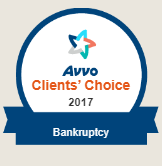Debt has become a way of life for many in California and across the country. At best it’s utilized with a big-picture plan in place consistent with using only as needed, resources to enable an ultimate pay off and not letting debt service overtake the budget. More problematic is when carrying credit debt is not optional, and it’s a sign of crisis when only the minimum payments are made each month. If that’s the case, it may be time to consider negotiating a debt-forgiveness plan.
Unfortunately, when debt starts closing in but the borrower still is above water, there’s not much that can be done. Typically, a borrower must be seriously delinquent before the holder of the debt will even consider debt-forgiveness. Even where it is possible, however, money experts caution that debt-forgiveness has downsides that make it perhaps not worth pursuing.
Initially, some debt is unlikely to qualify, such as mortgage debt or student loan debt. Secondly, many people are surprised to learn that the amount of debt forgiven can be considered income to the debtor in the year forgiven. This is often discovered only after receipt of a 1099 Miscellaneous Income form from the entity forgiving the debt. Of course, the debtor can expect a hit to his or her credit score and must be cautious due to the significant number of unscrupulous players in the debt-forgiveness business.
If finances have spiraled out of control, there is an option to get a fresh start that in many cases can wipe out all debt. A bankruptcy lawyer can explain how a Chapter 7 or Chapter 13 may provide solutions to debt problems.



